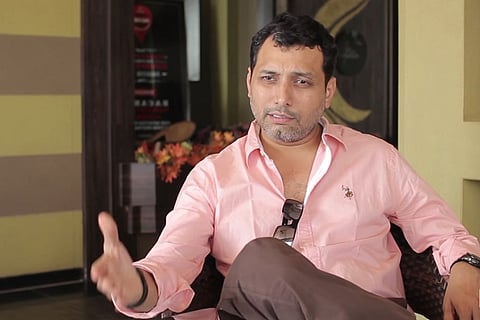

With hits like A Wednesday, Special 26, and Baby under his belt, writer, director and producer Neeraj Pandey has a reputation for giving his audiences powerful and thrilling stories. But for Neeraj, the thrill of the chase is secondary to the stories and the people that inhabit them.
Indeed, he says, talking to The News Minute in Bengaluru ahead of the release of his latest production Naam Shabana, but for quirks of fate, he might have become a very different storyteller.
“When I wrote my first film, which I could never make, it was a love story. It was an out-and-out love story which never got made because we couldn't raise enough money for that. There was the second film which was a satire on the film industry, we couldn't even raise money for that. The third film I wrote was a drama, even that didn't get made. A Wednesday happened to be my fourth script. If any of those films would have gotten made, I would have had another journey,” he says.
Quirks of fate aside, however, Neeraj’s reputation for thrillers brings significant selling power to his latest outing, Naam Shabana, which he wrote and produced but handed over the directorial reins to Shivam Nair. A spinoff of Neeraj’s acclaimed 2015 hit Baby, Naam Shabana traces the backstory of field agent Shabana, played by Taapsee Pannu, who had wowed audiences with her 20-minute appearance in the 2015 film.
Handing over directorial responsibility for the franchise of such a successful hit to another director, says Neeraj, wasn’t all that hard however.
“I can't be doing every script that I write. If there's a chance, an opportunity to do something that I would only be comfortable writing, not directing, then I am always open to the idea of having an outside director and letting him take the material and giving his own spin on it," he explains.
Of course, it helped that Neeraj was convinced from the start by Shivam’s vision for Naam Shabana. “In one of our first meetings, Shivam said that he would like to use the score from Baby in specific places in the script. That was very refreshing. I normally don't think about the background score till the time that I shoot the film. But he was very clear right from day one that he would be using that... And because there were certain places where these characters from Baby start making appearances, and he knew just what to do with them,” says Neeraj.
And while Neeraj handed over the reins of his film to a director he knew and was comfortable with, the cast also seems much like the meeting of old friends, featuring Akshay Kumar, Anupam Kher and Manoj Bajpayee – all of whom Neeraj has gone back to again and again through his career.
“Anupamji is basically someone who has threatened me that if I ever do a film without him, he's not going to let me be in peace,” he laughs, and then adds more seriously, “These are actors basically who I love working with. There's no denying that whether it's Mr Kher, or Akshay or Manoj, for that matter, there's a tremendous sense of comfort with their skill. And I don't have to spend too much time in communicating what I want.”
For Neeraj, what’s really exciting about the film is that, despite this cast of male stars, the film weaves itself around the character Shabana, one of the few Indian women spies seen on screen. “I had a fantastic team of actors that believed that she should take centre-stage, and they'll be on the fringe. You can see that these are serious A-listers in their own space -- an Akshay, a Manoj, a Prithviraj, a Danny sir, an Anupamji, all coming together and still wanting to be on the fringe of a film that's got Taapsi in the centre,” he says.
In Shabana, Neeraj hopes, audiences find an exciting, relatable character, because that would set a precedent for other such women characters to appear on the screen. “We are in exciting times. Today we've got this. If this works, it's a precedent. And it's easier to function once there's a successful precedent in place,” he says.
Alongside relatable characters, Neeraj emphasises the need to bring realistic worlds on to the screen. It’s the primary learning he carries over from his early career making television documentaries, which now seems a world away from his current material.
“I don't know how I bridged the gap myself,” he concedes, adding that it is the innate realism of the worlds he depicted in documentaries that he carries over into his fiction films. “I don't like to believe that it's a manufactured world in any of our films. It's a world that you and me, we live in, we belong to, and where we make our decisions, where we question our decisions, where we lead our life.”